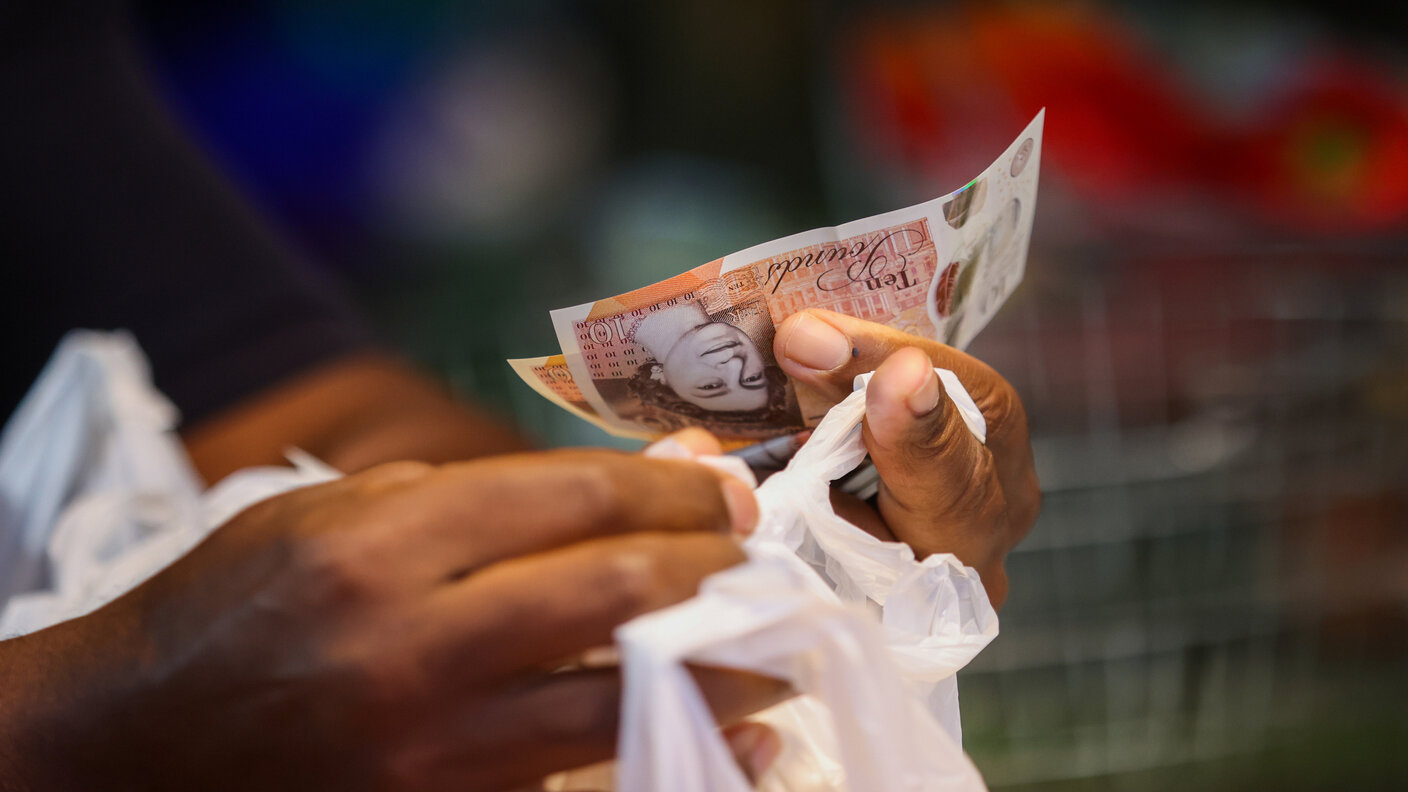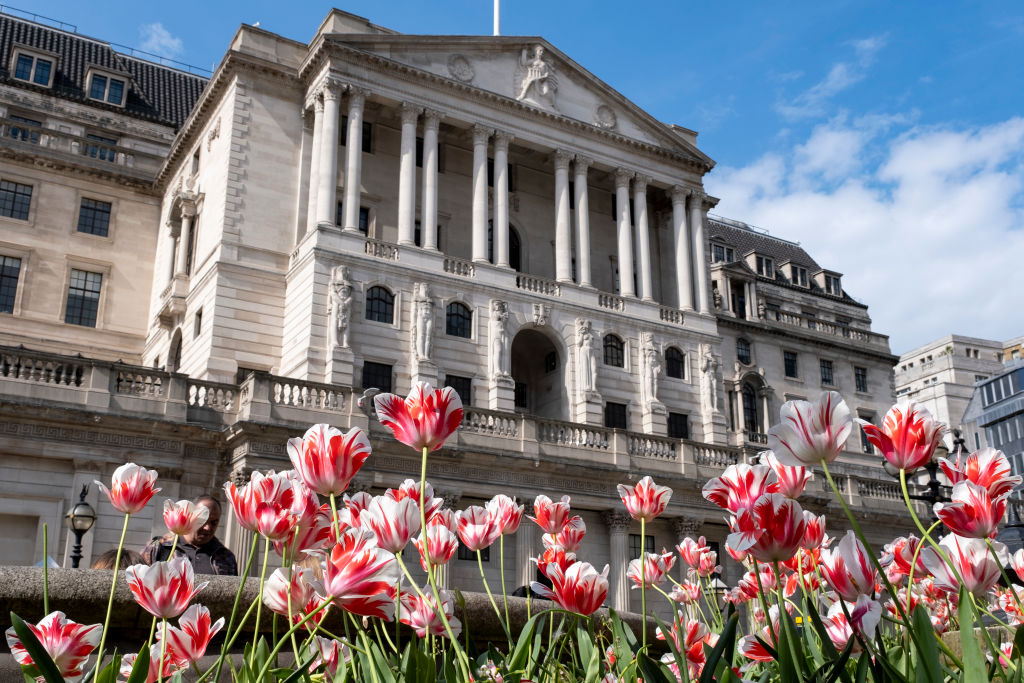UK inflation slows again, but remains near a 40-year high
Figures from the Office for National Statistics showed CPI fell to 10.1% in January as lower fuel prices started to filter through to consumers.


Get the latest financial news, insights and expert analysis from our award-winning MoneyWeek team, to help you understand what really matters when it comes to your finances.
You are now subscribed
Your newsletter sign-up was successful
Want to add more newsletters?
Inflation slowed again in January primarily due to lower petrol and diesel prices, although the Consumer Prices Index (CPI) remains near a 40-year high.
CPI came in at 10.1% in the year to January 2023. After slowing for three months straight, it’s now well below the peak of 11.1% reached in October 2022.
What were the biggest factors in the CPI inflation reading
High food and drink prices continued to be the biggest driver of inflation in January. Food inflation was 16.8% in the year to January, down only 0.1% from 16.9% in December.
Try 6 free issues of MoneyWeek today
Get unparalleled financial insight, analysis and expert opinion you can profit from.

Sign up to Money Morning
Don't miss the latest investment and personal finances news, market analysis, plus money-saving tips with our free twice-daily newsletter
Don't miss the latest investment and personal finances news, market analysis, plus money-saving tips with our free twice-daily newsletter
Meanwhile, alcohol and tobacco prices increased 5.2% year-on-year in January from 3.8% in December.
The housing and household services category - which includes the cost of electricity and gas for domestic households - also remained high. Data from the ONS shows prices in this category grew 11.8% in January compared to the same period last year.
The cost of restaurants and hotels dipped, from 11.4% in December to 10.8% in January, and the cost of transport, particularly fuel, continued to fall, nearly halving from 6.9% in December to 3.4% in January.
“The continued dip in fuel prices remains a key contributor to the fall of the headline inflation figure, but high food and energy prices continued to put the pressure on British households,” says Myron Jobson, senior finance analyst at interactive investor.
“These types of inflation are sticky because we are resigned to paying it as they form part of essential expenditure for many.”
Despite its third consecutive monthly fall, the rate of inflation remains well above the Bank of England’s (BoE’s) 2% target.
As such, the central bank’s rate-setting Monetary Policy Committee (MPC) will likely be paying close attention to these figures when it discusses whether or not to raise interest rates at its next meeting.
Markets and analysts are expecting the MPC to hike rates by 0.25% when it next meets.
That will take the base rate to 4.25%, the highest level since 2008.
What next for inflation?
Inflation is forecast to halve by the end of the year, but there’s no guarantee of this happening. Indeed, there are multiple factors at play that could influence the figures in the months ahead.
Most importantly, households will see another hike in energy prices from April, when the new Energy Price Guarantee comes into effect. The cost of bills for the typical UK household is expected to rise from £2,500 to £3,000.
Ofgem is getting ready to announce its next price cap later this month, and if it’s lower than the EPG it could replace it.
But despite this protection for consumers uncertainty around where energy prices will go in 2023 remains, and there’s no getting away from the fact that households are going to be paying significantly more for energy in 2023 than they have been in the past.
“Small tweaks down in prices in some areas don’t stop the fact that many people are still seeing bills rise, with energy and food costs still increasing,” says Laura Suter, head of personal finance at AJ Bell.
“It feels like a long journey from here to the Bank of England’s prediction of 3% inflation in the first few months of 2024.”
What does rising inflation mean for you?
“High inflation has a very damaging effect on disposable incomes as it erodes purchasing power and eats into savings, forcing households to make spending cutbacks with repercussions for businesses,” says Alice Haine, personal finance analyst at Bestinvest.
“Match it with the highest interest rates since the financial crisis and it leaves consumers not only contending with falling real wages but also grappling with higher prices and borrowing costs.
“Throw in frozen tax thresholds and most households won’t be celebrating the lower inflation figure just yet. Instead, careful budgeting will remain a priority for now as they strive to keep everyday costs in line.”
If the BoE continues to raise rates to bring inflation down, it will have a knock-on effect on mortgage rates. These are already far higher than they were at the end of 2021, sitting between 5% and 6%.
But the seemingly impending rate rise has already been priced into most deals, and lenders are starting to compete for business. Last week HSBC became the first lender to launch a deal with a rate below 4%.
But affordability will remain “an issue for first-time buyers and those looking to remortgage”, says Haine.
“High inflation dents purchasing power with money simply unable to stretch as far, something lenders carefully when evaluating borrower’s creditworthiness.
“However, with house prices on the slide, first-time buyers unable to borrow the amount they hoped to might find some wiggle room on the price of the property they are looking to purchase instead.”
On the other hand, savers will continue to benefit from the BoE’s interest rate rises. While the best savings accounts still don’t offer rates that match the inflation rate, they are still far more competitive than they were 12 months ago.
“It is still a good idea to move money languishing in an account with an ultra-low interest rate to one offering better returns such as 3.1% for an easy-access account, up to 7% for regular returns or a competitive 3.3% for NS&I’s Premium Bonds from March,” says Haine.
Get the latest financial news, insights and expert analysis from our award-winning MoneyWeek team, to help you understand what really matters when it comes to your finances.
Nic studied for a BA in journalism at Cardiff University, and has an MA in magazine journalism from City University. She has previously worked for MoneyWeek.
-
 Do you face ‘double whammy’ inheritance tax blow? How to lessen the impact
Do you face ‘double whammy’ inheritance tax blow? How to lessen the impactFrozen tax thresholds and pensions falling within the scope of inheritance tax will drag thousands more estates into losing their residence nil-rate band, analysis suggests
-
 Has the market misjudged Relx?
Has the market misjudged Relx?Relx shares fell on fears that AI was about to eat its lunch, but the firm remains well placed to thrive
-
 Why Scotland's proposed government bonds are a terrible investment
Why Scotland's proposed government bonds are a terrible investmentOpinion Politicians in Scotland pushing for “kilts” think it will strengthen the case for independence and boost financial credibility. It's more likely to backfire
-
 How have central banks evolved in the last century – and are they still fit for purpose?
How have central banks evolved in the last century – and are they still fit for purpose?The rise to power and dominance of the central banks has been a key theme in MoneyWeek in its 25 years. Has their rule been benign?
-
 UK to have highest inflation among advanced economies this year and next, says IMF
UK to have highest inflation among advanced economies this year and next, says IMFThe International Monetary Fund (IMF) says it expects inflation to remain high in the UK, while lowering economic growth forecasts for 2026.
-
 Is Britain heading for a big debt crisis?
Is Britain heading for a big debt crisis?Opinion Things are not yet as bad as some reports have claimed. But they sure aren’t rosy either, says Julian Jessop
-
 'Britain is on the road to nowhere under Labour'
'Britain is on the road to nowhere under Labour'Opinion Britain's economy will shake off its torpor and grow robustly, but not under Keir Starmer's leadership, says Max King
-
 'Governments are launching an assault on the independence of central banks'
'Governments are launching an assault on the independence of central banks'Opinion Say goodbye to the era of central bank orthodoxy and hello to the new era of central bank dependency, says Jeremy McKeown
-
 Why investors can no longer trust traditional statistical indicators
Why investors can no longer trust traditional statistical indicatorsOpinion The statistical indicators and data investors have relied on for decades are no longer fit for purpose. It's time to move on, says Helen Thomas
-
 Live: Bank of England holds UK interest rates at 4.5%
Live: Bank of England holds UK interest rates at 4.5%The Bank of England voted to hold UK interest rates at their current level of 4.5% in March, as widely anticipated, after inflation rose to 3% in January
